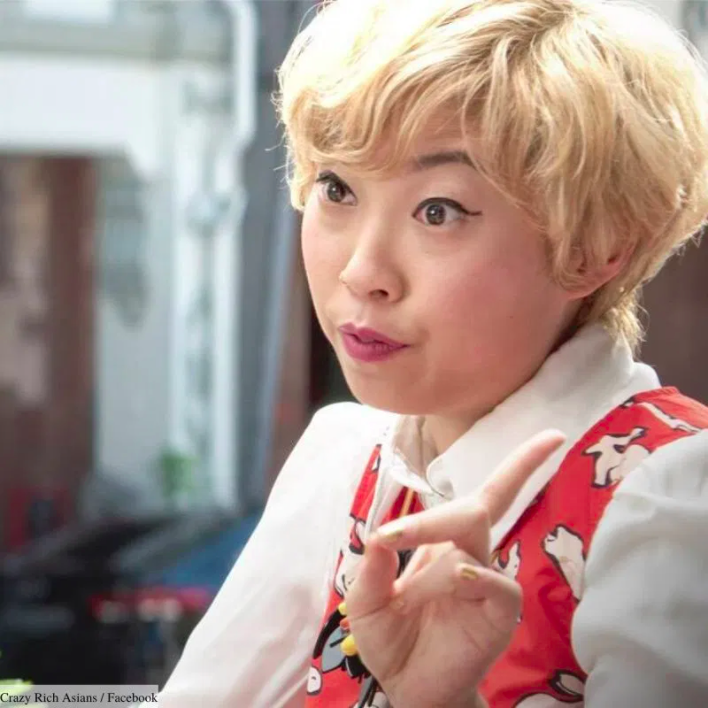Awkwafina is a peculiar actress to say the least. Best known for her roles in Oceans 8, The Farewell, Crazy Rich Asians, and Jumanji, her rise to fame began with her rap career once her song “My Vag” went viral on Youtube in 2012. Nora Lum, (Awkwafina’s real name) was raised in Queens (New York City) by her Chinese-American father, and Korean-American mother.

Awkwafina’s characters often serve as comedic relief and a side-kick for the main character. With the exception of The Farewell, her roles are usually of the quirky, funny plot device. What makes her unique is how eerily similar her voice is to that of a stereotypical Black woman. In Crazy Rich Asians, Awkwafina’s character Piek Lin exclaims “…but ya can’t swerve! You gon’ roll up in there and be like: bak bak bitch!”. Awkwafina’s Blaccent goes beyond her tone of voice though, this line includes the wagging of her finger, shaking of the head, her posture, and even fashion. It has been argued that she did this for that specific role, yet the same accent and presence is seen in her role as Costance in Oceans 8. When delivering a line that is meant to be funny, the accent seems to be more prominent than other situations her character(s) are put in.
It is questionable if Awkwafina is flirting with appropriating Black culture. By rising to fame through rapping, she arguably has been using Black culture to her benefit without it being mentioned since her debut in 2012. On screen, she has taken roles usually played by Black actors. Asian and Black people are commonly set aside as supporting characters, but more often are Black (particularly women and the overweight) characters used for comedic effect. Throughout the history of film, Black characters have been put into roles that perpetuated stereotypes such as the mammy, jezebel, and the funny big girl. More recently has there been the diversification of Black characters and stories. The limitation of the roles a Black actor can play nowadays has been lifted. In Hollywood, the Asian community (with few exceptions) has not benefited from diversification Black characters are gradually being granted.
Upon first seeing Awkwafina act, I felt confused and nearly offended. With time I questioned why her voice and presence bothered me so much. Awkwafina is not unique in this form of self presentation. In fact, what makes her stand out is that as a famous person (thereby in the public eye), she continues the all-too-common act of POC [person of colour] “blackfishing”. Blackfishing is a recent term used to describe non-Black people embodying traditionally stereotypical aspects of Black culture. An example would include Awkwafina’s voice, but also a change in skin tone, hair, or style with the purpose of appearing more ethnically ambiguous, mixed race, or Black.
In Awkwafina’s case, it was essential for me to acknowledge that I was unjustifiably taken aback by how she does not fit into the Asian stereotypes I was so used to seeing in movies. Stereotypically, Asian women are expected to be meek, smart, and quiet. All of which completely contradict Awkwafina’s presence. By being naturally “sassy”, loud, and funny, she is actively pushing the boundaries of how Asians are portrayed.
In a way, she is both a step forwards and backwards. Rejecting Asian stereotypes is admirable, but the cost of her way of doing so is at the detriment of the Black community. She is undoubtedly challenging Asian stereotypes perpetuated onto her, while simultaneously benefiting from the adoption of certain aspects of Black culture.
